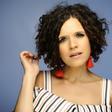Musician Jules Rendell shares her experience in the music industry and answers the question, can Christians listen to secular music?

George Michael, David Bowie, Leonard Cohen… 2016 was the year that many those iconic artists died. But the one that hit hardest for me was Prince. "Who’s Prince?" my mum asked, to my horror. Of all the artists I love, it’s Prince’s music inspires me the most, not just the feel-good funk and soul we all know (Kiss, 1999, Raspberry Beret, Purple Rain) but the way he wrote about all kinds of subjects - including God and Christianity.
I bet you didn’t even know he’d written "The Cross", did you? Why? Because Prince’s hits were about secular life - money, drugs, partying, sex, promiscuity. In an attempt to reacquaint my mum with his back catalogue, my mind went blank. The only hit I could remember was "Gett Off’. To her horror, I sang the main line, “23 positions in a one-night stand…” Aaaargh!
I would have been ten years old when that song was released and it was the one that stuck in my head - not "Diamonds and Pearls". At 13, I specifically remember being at the school disco and dancing to "I Wanna Sex You Up" along with plenty of other raunchy R'n'B numbers.
At 13, I specifically remember being at the school disco and dancing to "I Wanna Sex You Up".
At 18, I became a Christian and quickly immersed myself in worship and gospel music. My life had gone from black and white in to vivid colour when I found Jesus; music was the epicentre of that experience. I’d never heard, or felt, anything like it before in pop music. Kirk Franklin and Fred Hammond sat alongside the Soul Survivor live albums in my CD collection; it became a mission to learn all the oldies as well as the current worship songs.
https://www.youtube.com/watch?v=LzRzojHC3iEI loved what I heard, for both the melodies and the truths in the songs. Becoming a Christian was the beginning of me as a songwriter. And there was so much music to be inspired by, old and new, classical, secular, spiritual. At 19, D’Angelo’s album Voodoo was released. It was the height of Neo Soul, the master of groove, critically acclaimed, oh-so-smooth and, well, sexy. I was told I shouldn’t be listening to music like that - lyrics that could stir my attention away from holiness towards less desirable, lustful pursuits.
Read more on music
Ellie Goulding's latest music has such clear biblical themes - has she become a Christian?
‘Music has been a sustaining force for black people throughout history’
I'm about to turn 50 and just released my first single - God puts no age limit on creativity
I was being exposed to so much creativity, and I could feel God inspiring me through it all. As the years went on, I became more and more frustrated with Christian music. Lazy lyric writing. Predictable four chords. Saying the same things in the same way, in a poor imitation of U2 rock. The simplicity and freedom of the live worship albums from the 90s had been replaced with overly produced, boring, lifeless offerings.
I was being turned off worship music all together. My wise worship pastor used to say this: “Songs can’t be saved, only people can.” Could I have a Holy Spirit encounter with an orchestral piece, or hear God’s voice through an Ed Sheeran song, or feel the joy of the Lord listening to Pharrell Williams?
I became frustrated with Christian music. Lazy lyric writing. Predictable four chords. Saying the same things in the same way, in a poor imitation of U2 rock.
Here we are in 2023. There are some of the vilest songs ever penned being played on national radio. Songs that push agendas we don’t want our kids to be influenced by. History repeating itself, but in a concentrated form. Thankfully, there are also Christian artists pushing creative boundaries and themselves in to the mainstream, like Guvna B, Jake Isaac, Tori Kelly, Maverick City Music. We don’t need to limit ourselves to Christian music but we can and should be picky with the language and topics we listen to. We can be inspired and impacted by the creativity that God has placed in all of us - saved or not.

































No comments yet